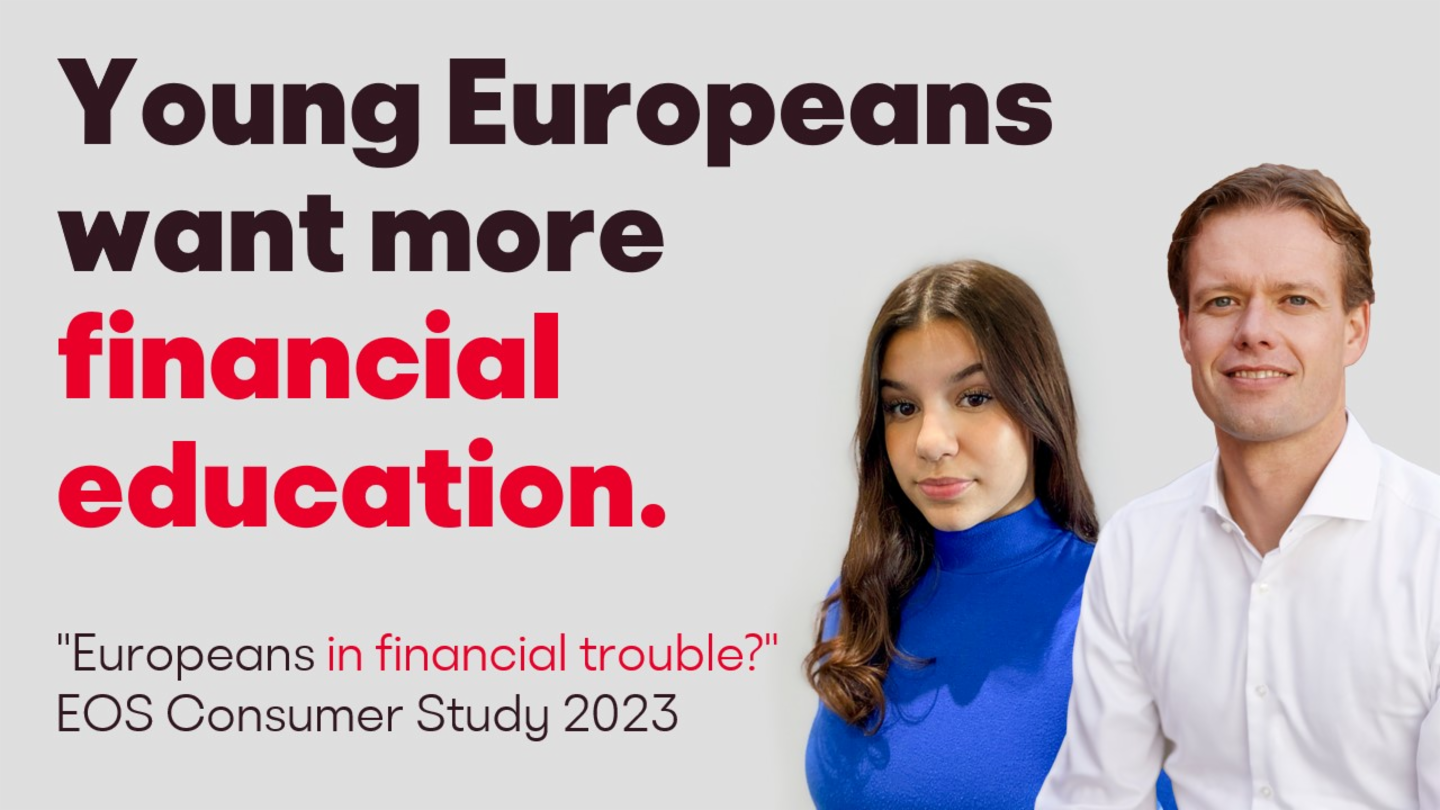- Half of the young people polled are worried about their financial and professional future.
- Many of them want more financial education. Interest in the topic is generally very high.
- Around one in five people aged between 18 and 34 have taken on debt in recent months.
- However, overall, young people in Europe handle their finances responsibly.
“Cash stuffing” is a method of saving where you split up your available monthly income as cash and put it into different envelopes, each of which represents a specific budget category like rent, food or vacations. The aim is to keep an eye on your expenditure and avoid nasty surprises at the end of the month.
You would assume that in times of PayPal and online banking, this rather obsolete form of financial self-governance would be a bit outdated. However, the trends on social media platform TikTok tell a different story, because cash stuffing is once again proving very popular, especially among young people, since the sharp rise in inflation. Clues as to why millennials and the Gen Z cohort especially are using these “analogue” methods are provided by the results of the “Europeans in Financial Trouble?" EOS Consumer Study 2023.

I think we should have an obligatory subject in school covering the topic of finances.
Surprisingly, cash is becoming more popular again, especially among young people.
For a long time now, cash has been dismissed as a thing of the past. During the years of the pandemic, its use in Europe declined substantially yet again. But the results of the EOS survey paint quite a different picture: Although in recent months, young people aged between 18 and 34 have also been using digital payment methods like PayPal or Klarna, it is surprising to note that at the same time, 48 percent of them said they had also been resorting to cash more often (by way of comparison: 42 percent of all respondents).
The fact that particularly in times of high inflation rates, people are now resorting to tried and tested payment methods again, is probably because unlike its digital counterpart, cash is indicative of more security and control over your own finances. And as the survey shows, it is the 18-34 year-old cohort that is feeling especially insecure when it comes to their own futures. One in two is worried about their financial situation, above all inflation (70 percent), followed by high energy costs (47 percentage) and fears about unemployment (27 percent).
Young people want more financial literacy.
Although a majority of respondents (47 percent) share the financial concerns of young people, there are very stark differences when it comes to the issue of financial literacy. At 51 percent, the proportion of the younger age group wanting more financial education is well above the average (43 percent) and even higher than among the over-50 generation (34 percent). This could be taken as an indication that the capacity to handle your finances properly is something that you acquire in the course of your life, although even at a young age there are already many financial decisions to be taken that affect your future.
“At school there are far two few options for financial education,” says Liz Weber. “Although it is so important”, agrees Ruben Hübscher. Both are currently completing training at EOS in Switzerland. And they have had to work out for themselves how to handle their first few wage packets responsibly. Liz says: “I am 17 and have never learned how to do my taxes. Luckily my father is able to help me with that. But what are young people who have to fend for themselves supposed to do?” Ruben has an idea about how to tackle the problem: “I think we should have an obligatory subject in school covering the topic of finances.”

Finlit brings financial education to schools.
As well as learning to save properly and do your tax returns, there is another potential knowledge gap that needs filling, especially in times of crisis: How do I deal with debts? In the survey, a total 22 percent of respondents between 18 and 34 stated that they had taken on debt in recent months – far more often than in the over-50 generation (14 percent). Around one in ten borrowers from this age group (8 percent) said that insufficient experience with banks and loans was the main reason for their debt.
.jpg/jcr:content/Jana-highres_21B2624_(2).jpg)
We take a lot of time to learn many other things like reading, writing and arithmetic. The same should apply to handling money.
To better prepare the next generations for situations like these, the EOS Group established the finlit foundation in 2020. The non-profit organization’s mission is to teach school-aged children and adolescents how to handle money and in doing so help them avoid possible excessive personal debt in the course of their lives. “We talk too little about money and debt, although it is important to help people help themselves as early as possible,” says Jana Titov, Managing Director at finlit. The organization’s first educational program, ManoMoneta, is designed for elementary schoolchildren and has already been rolled out in schools in several European countries. Another program for young people aged 13-17 is already in the starting blocks in Germany. “Only if we start early enough can we remove the stigma associated with this issue and give young people confidence,” Jana adds.
Largely responsible handling of money.
It is encouraging that a majority of respondents in the 18-34 age group are already displaying a responsible attitude to handling money. 52 percent stated that they were living more price-consciously than a few months ago. Moreover, any debts taken on in the last few months were primarily for essentials like energy costs (20 percent), renovations (19 percent) and food (18 percent). In 58 percent of the cases the debt was less than EUR 1,000. A basic knowledge of how to handle money properly does seem to exist, as does an interest in the subject: 41 percent of respondents under 35 said that they like dealing with the topics of money and finances. Jana believes that it is therefore time to satisfy this thirst for knowledge at an early age: “We take a lot of time to learn many other things like reading, writing and arithmetic. The same should apply to handling money.”
As one of the leading international experts in receivables management with locations in 24 countries, EOS works with renowned market research institutes every year to produce market and consumer surveys. The surveys, covering issues like B2B and B2C payment practices, payment methods, digitalization and the use of data, deliver interesting insights.
If you would like to take a look at the detailed results of the study, please don’t hesitate to contact us.
Photo credits: EOS

